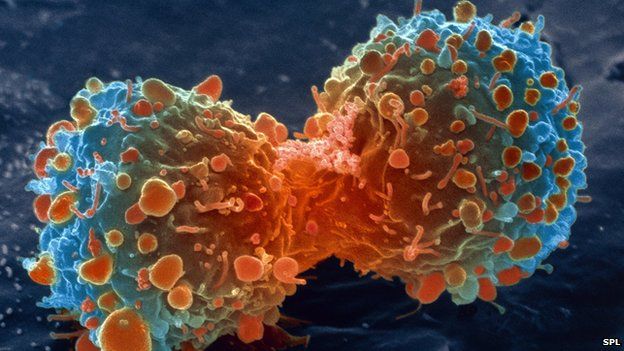LONDON (Web Desk) – Taller men and women are more likely to develop cancer than their shorter counterparts, The Guardian reported.
Researchers in Sweden found the risk of women developing cancer of any kind rose by 18% for every extra 10cm of height, while for men the risk rose by 11% – although height is not as great a risk for cancer as smoking, obesity and a poor diet.
Dr Emelie Benyi of the Karolinska Institute, who led the research, said there were several possible reasons for the link.
“One is that taller people have a larger number of cells in their body which could potentially transform to cancer.
It could also be that taller individuals have a higher energy intake which has previously been linked to cancer.”
The study analysed data on 5.5 million people born between 1938 and 1991, with heights ranging from 100cm (3ft 3in) to 225cm (7ft 6in).
Assessing the impact of height on developing different forms of cancer, they found the increased risk was highest in skin cancer, rising 30% for every 10cm in height. They observed a 20% increase in the risk of taller women getting breast cancer.
The Swedish researchers did not look at possible confounding factors such as smoking in their study, but the size of the sample and the good quality data meant that it could be taken seriously even though the full results have not been published, other scientists said.
The early results of the study, conducted by scientists from the Karolinska Institute and University of Stockholm, were presented at the annual European Society for Paediatric Endocrinology conference in Barcelona and will be published in full in due course.
“This observation has been made before in previous studies, and we already knew that breast and prostate cancers can be associated with height,” said Prof Mel Greaves of the Institute of Cancer Research.
One biologically plausible reason was to do with growth hormone, Greaves said. An earlier study showed that people with genetic dwarfism had very little cancer. “People with genetic dwarfism have a mutation in their growth hormone receptor and we know that growth hormone and growth hormone receptor are critical to tumour growth too,” he said.
Experiments in mice genetically engineered to make excess or very little growth hormone had also shown that their cancer rates increase or decrease.
“We know that in humans growth hormone not only stimulates bone growth during our growing years, but stimulates cell growth in general and blocks cell death. So the level of growth hormone someone has could affect cancer risk by pushing up cell numbers,” he said.
Prof Jack Cuzick, director of the Wolfson Institute of Preventive Medicine, Queen Mary University of London, said: “The association between height and cancer has been known for some time; many cancers are increased in incidence in tall people. This study should add important further confirmation in a population-based setting.
“The mechanisms for this effect are not clear and are worth further study. They may relate to the fact that the growth hormones related to height also are in some way stimulating cancer cells, but details are lacking.”
Dr Jane Green, clinical epidemiologist at the University of Oxford, said: “In general, I would caution against interpreting a link as causal – however for height and cancer there is considerable evidence that suggests that the link is not explained by other known factors. Clearly, adult height is not itself a ‘cause’ of cancer, but is thought to be a marker for other factors related to childhood growth.
“To put risk associated with a non-modifiable factor like height in context, it is worth noting that taller people have lower risks for heart disease and a lower risk of death overall.”
A breast cancer charity urged taller women not to worry that they may get the disease.
“Though these findings suggest a possible link between being tall and having an increased risk of breast cancer, just because a woman is tall, doesn’t mean they will definitely develop breast cancer,” said Carolyn Rogers, clinical nurse specialist at Breast Cancer Care.
“We must stress that the biggest risk factors for developing breast cancer are being female, getting older and for some, a significant family history of the disease.”














